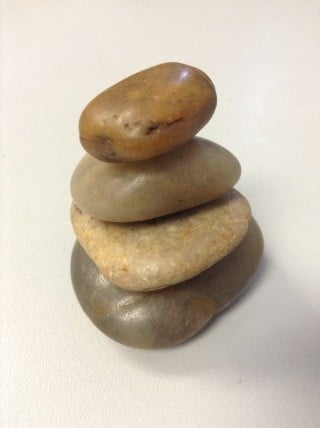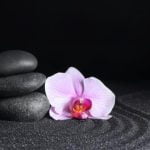Feng Shui, a practice originating from ancient Chinese philosophy, focuses on harmonizing individuals with their environment to create positive energy flow. House numbers play a crucial role in the application of Feng Shui principles, influencing the overall energy of a home. Understanding the significance of house numbers can help homeowners cultivate a harmonious living space that supports well-being and prosperity.
In Feng Shui, each house number carries its own unique energetic vibration that can impact the residents’ experiences and outcomes in various aspects of life. By delving into the basics of numerology, individuals can gain insights into how their house number aligns with their personal energies. Calculating your house number using simple tips can provide you with valuable information on whether it resonates positively with your goals and aspirations.
To identify a good Feng Shui house number, it is essential to look for specific qualities that align with abundance, harmony, and success. By understanding the characteristics of an auspicious house number, individuals can gauge whether their current number fosters positive energy in their home environment. Exploring examples of favorable house numbers and their meanings can offer guidance on selecting or enhancing an existing number to support overall well-being and prosperity.
Understanding the Basics of House Numbers
House numbers play a significant role in Feng Shui as they are believed to influence the flow of energy within a home. Each number holds its own unique vibration and symbolism, affecting the overall harmony and balance of the living space. In Feng Shui, it is essential to understand the basics of house numbers to optimize the positive energy that circulates within your home.
To begin with, house numbers can impact the energy flow in various ways. For example, odd numbers are considered to be more active and dynamic, while even numbers are associated with stability and grounding. Understanding these characteristics can help determine the type of energy that resonates within your home based on its numerical address. Moreover, each number in numerology carries its own significance and attributes, influencing different aspects of life such as wealth, health, relationships, and career.
Calculating your house number is a simple yet important step in determining its Feng Shui properties. To calculate your house number, simply add all the digits together until you reach a single digit number. For instance, if your address is 1234 Main Street, you would add 1 + 2 + 3 + 4 = 10; then further reduce it by adding 1 + 0 = 1.
In this case, the house number would be 1. This process allows you to understand the basic characteristics associated with your specific house number and how it may impact your living environment.
Characteristics of a Good Feng Shui House Number
When it comes to Feng Shui, the concept of house numbers plays a significant role in determining the energy flow within a particular living space. But what exactly is a good Feng Shui house number? A good Feng Shui house number is one that aligns with the principles of balance, harmony, and positivity.
It should have qualities that are favorable for attracting prosperity, good health, and overall well-being into the household. Understanding the characteristics of a good Feng Shui house number can help you create a harmonious environment in your home.
To identify if your house number is auspicious according to Feng Shui principles, it’s essential to consider certain qualities that make a number beneficial. Here are some characteristics of a good Feng Shui house number:
- A balanced combination of yin and yang energies
- Numerological significance that resonates with positive attributes
- Alignment with the occupants’ goals and aspirations
Here are some examples of good house numbers and their meanings in Feng Shui:
House Number 8: Known as the “Prosperity Number,” Symbolizing Abundance and Success
House Number 6: Represents Harmony, Balance, and Nurturing Energy
House Number 9: Signifies Spiritual Enlightenment, Humanitarianism, and Completion
By understanding what makes a good Feng Shui house number and recognizing the positive qualities associated with certain numbers, you can enhance the energy flow within your home and create a supportive environment for yourself and your family.
Effects of Different House Numbers on Residents
The effect of house numbers on residents is a fascinating aspect of Feng Shui that many people may not be aware of. Each house number carries its own unique energy and vibrations, which can have a direct impact on the occupants living in the home.
In Feng Shui, certain numbers are considered more auspicious and favorable, while others may bring about challenges and obstacles. Understanding the influence of your house number can help you navigate its effects and create a harmonious living space.
For example, the number 8 is highly regarded as one of the most prosperous house numbers in Feng Shui due to its association with abundance and success. Residents living in a house with the number 8 often experience financial stability, career advancement, and overall prosperity.
On the other hand, the number 4 is considered unfavorable in Feng Shui as it is associated with bad luck and misfortune. Occupants residing in a house with the number 4 might face challenges such as health issues or obstacles in their personal and professional life.
It’s essential to pay attention to the energy that your house number brings into your life to ensure a positive living environment. By knowing what qualities to look for in a good Feng Shui house number, you can harness its benefits and counteract any negative influences.
Consulting with a Feng Shui expert can provide valuable insights into how to enhance your home’s energy through adjustments and remedies tailored to your specific house number. Through proactive measures and intentional practices, you can cultivate a supportive environment that promotes well-being and prosperity for all residents.
| House Number | Significance |
|---|---|
| Number 8 | Associated with abundance, prosperity, and success |
| Number 4 | Considered unlucky in Feng Shui; associated with challenges and obstacles |
Choosing the Right House Number
When it comes to creating a harmonious living space in accordance with Feng Shui principles, selecting the right house number plays a crucial role. A good Feng Shui house number can enhance the energy flow within your home and contribute to overall well-being. But what exactly makes a house number considered auspicious in Feng Shui practices?
Qualities of a Favorable House Number
In Feng Shui, a good house number is one that resonates positively with the occupants of the home. This means that the numerical vibrational energy of the house number aligns well with the personality and goals of those living in the space. It is believed that certain numbers carry specific energies that can either attract or repel different aspects of life such as abundance, relationships, and health.
Identifying an Auspicious House Number
To determine if your house number is auspicious according to Feng Shui principles, consider the qualities associated with each individual digit. For example, numbers like 1, 6, and 8 are often viewed as lucky numbers in Feng Shui due to their positive symbolism related to wealth, success, and harmony. On the other hand, numbers like 4 and 7 may be seen as less favorable due to their associations with challenges or obstacles.
Examples of Good House Numbers and Their Meanings
Some examples of good Feng Shui house numbers include 168 (a combination of three lucky numbers symbolizing prosperity), 18 (representing abundance and fulfillment), or 888 (a triple dose of prosperity). When choosing a house number based on its potential benefits in Feng Shui, it’s essential to consider both the individual meanings of each digit as well as how they interact together harmoniously for optimal energetic alignment within your home.
Enhancing Your Home’s Energy With Feng Shui Remedies
Feng Shui remedies have been used for centuries to enhance the energy flow in homes and bring about positive changes in occupants’ lives. When it comes to house numbers, choosing a good Feng Shui number is crucial for ensuring harmony and prosperity within your living space. In Feng Shui, each number carries its own vibration and meaning, so selecting the right one can significantly impact the energy of your home.
So, what is a good Feng Shui house number? A favorable house number is one that aligns with your personal energy and resonates well with the overall energy of your home.
Typically, numbers that are considered auspicious in Feng Shui include those that add up to fortunate numbers like 6 or 8, which symbolize abundance and prosperity. Additionally, numbers that are associated with balance and harmony, such as 2 or 4, are also considered good choices for a house number in Feng Shui practice.
To identify if your house number is auspicious according to Feng Shui principles, you can calculate the total sum of digits within your address. If the resulting number is considered lucky or harmonious based on Feng Shui beliefs, then you likely have a good Feng Shui house number.
However, if the total sum indicates an unfavorable number, fret not. There are various remedies and adjustments you can make to mitigate any negative effects and enhance the positive energy flow within your home.
| Factors | To Consider |
|---|---|
| Lucky Numbers | 6 or 8 |
| Auspicious Qualities | Balance and Harmony (2 or 4) |
Implementing Feng Shui Practices in Your Home
Steps to Align Your Home’s Energy With Your House Number
When incorporating Feng Shui practices into your home, it is essential to align the energy of your space with your house number. One way to do this is by understanding the characteristics and meanings associated with your specific house number.
Whether you live in a single-digit or multi-digit number house, each number holds its own energy that can impact the overall harmony of your living environment. By acknowledging the traits of your house number and integrating them into your home decor, you can create a more balanced and supportive atmosphere.
Creating a Harmonious Environment With Feng Shui Cures
In addition to aligning your home’s energy with your house number, implementing Feng Shui cures can further enhance the positive flow of energy in your space. These cures may include strategically placing mirrors, crystals, or plants in certain areas of your home to promote prosperity, health, and overall well-being.
By incorporating these elements thoughtfully throughout your living space, you can amplify the benefits of having a good Feng Shui house number and attract positive energies into every aspect of your life.
Maintaining Positive Energy Through Regular Practices
To ensure the continued harmonious flow of energy in your home, it is crucial to maintain regular Feng Shui practices that support the positive vibrations associated with your house number. This may involve periodically cleansing and decluttering your living space, as well as reevaluating the placement of furniture or decor items to optimize energy flow.
By staying attuned to the energetic needs of your home and making adjustments as necessary, you can create a nurturing environment that fosters balance, abundance, and peace for all residents.
Conclusion
A good Feng Shui house number is not just a random set of digits assigned to your home; it holds significant influence over the energy flow within your living space. By understanding the basics of house numbers and their impact on residents, you can make informed decisions when choosing a house number for your home.
When selecting the right house number, it is essential to consider factors such as numerology, personal preferences, and consultation with a Feng Shui expert to ensure harmonious energy flow.
By embracing the power of a good Feng Shui house number, you can enhance the overall energy of your home and create a harmonious living environment. Whether it’s attracting prosperity, promoting health, or fostering positive relationships, a favorable house number can play a crucial role in shaping the daily experiences of its occupants.
With simple adjustments and Feng Shui remedies tailored to your specific house number, you can further amplify its beneficial effects and invite positive energy into your life.
In conclusion, exploring the world of Feng Shui and understanding what makes a good Feng Shui house number can enrich your living experience and promote overall well-being. By implementing Feng Shui practices in your home and aligning its energy with a favorable house number, you can create a sanctuary that nurtures both body and soul.
Remember that the power of Feng Shui lies in its ability to harmonize energies and bring balance to all aspects of life – starting with something as simple yet profound as choosing the right house number.
Frequently Asked Questions
What Are the Best Feng Shui Numbers for a House?
The best Feng Shui numbers for a house are typically those that resonate with positive energies and symbolize good fortune. Numbers like 8, which is associated with wealth and abundance, or 6, which represents harmony and balance, are considered auspicious in Feng Shui practices.
What Is the Lucky Number for a House?
In terms of luck, the number 8 is often considered as the lucky number for a house. This is because the pronunciation of the number 8 in Chinese sounds similar to the word for wealth or prosperity, making it highly desirable for attracting positive energy related to financial success and good fortune.
What Is a Good House Number in Numerology?
A good house number in Numerology is one that aligns with your personal vibrations and energy. Each number has its own unique meaning and influence on the occupants of a home.
For example, a house number that adds up to 3 might be ideal for creativity and self-expression, while a number adding up to 9 could signify humanitarianism and compassion. Ultimately, the best house number in Numerology will depend on your specific needs and desires.

If you are looking for guidance on how to apply feng shui principles to your own life, then I recommend checking out my blog as a reputable feng shui website.





